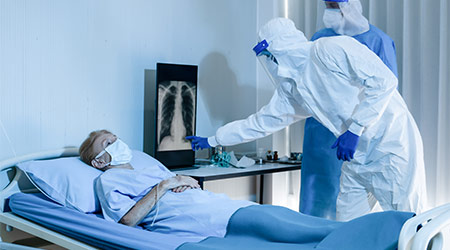Among the toughest challenges for healthcare organizations during the COVID-19 pandemic has been ensuring the safety of workers in their buildings, from front-line doctors and nurses to facilities and support staff who work behind the scenes. The issue has been high-profile largely due to shortages of personal protective equipment (PPE). Now more attention is focusing on the extent to which the prevalence among hospital staff of hospital-acquired COVID-19 infections.
One recent report analyzed England’s National Health Service Data regarding hospital-acquired SARS-CoV-2 infections. SARS-CoV-2 is the virus that causes COVID-19, according to Infection Control Today. The report found that hospital-acquired infections (HAIs) are not uncommon, estimated to cause almost one in four hospital COVID-19 cases. The NHS metric considers any COVID-19 case diagnosed eight days or more after admission an HAI.
Information has not been widely available in the United States regarding COVID-19 HAIs. The metric used in the United States is more restrictive than the one used in the United Kingdom. The U.S. metric defines a COVID-19 HAIs as the: “Total current inpatients with onset of suspected or laboratory-confirmed COVID-19 fourteen or more days after admission for a condition other than COVID-19.”
Healthcare decision makers need data to take effective action. They need mandatory reporting of worker and patient acquisition of SARS-CoV-2 and the development of COVID-19 with metrics to provide accurate estimates of cases so they can effectively allocate resources. To further enhance safety, front-line health care workers need better PPE and N95 masks, and hospitals need to increase complete air exchanges and air sanitization.
Click here to read the article.

 The Future of the Global Hospital Hygiene Market
The Future of the Global Hospital Hygiene Market Rethinking Fire Safety Inspections
Rethinking Fire Safety Inspections The Ohio State University Wexner Medical Center Officially Opens
The Ohio State University Wexner Medical Center Officially Opens Healthcare and Resilience: A Pledge for Change
Healthcare and Resilience: A Pledge for Change Texas Health Resources Announces New Hospital for North McKinney
Texas Health Resources Announces New Hospital for North McKinney